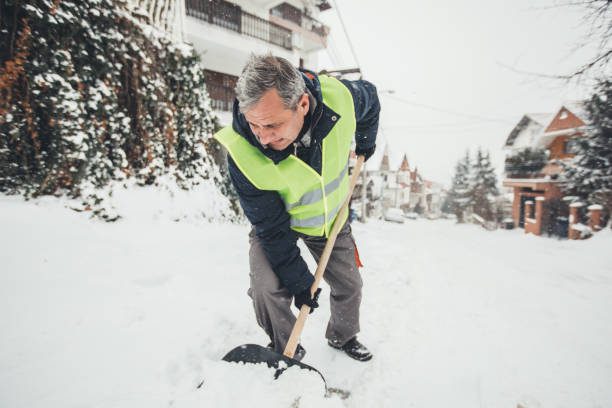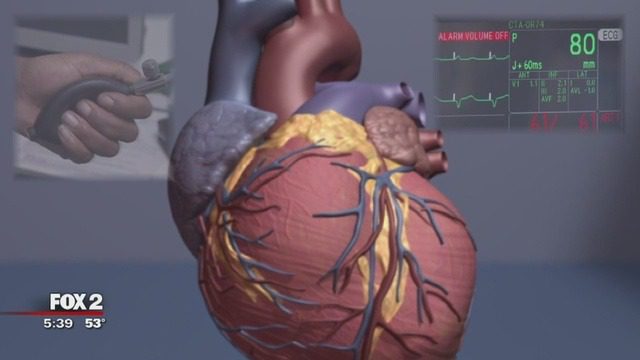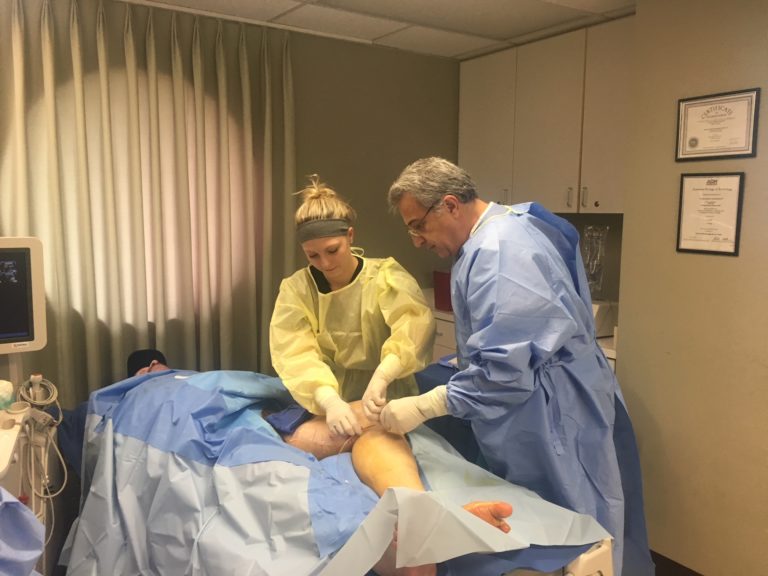Heart safety while shoveling snow
Each winter, roughly 100 people in the U.S. die from shoveling snow. While many dream of a “White Christmas,” cold temperatures combined with the physical effort it takes to dig through those heavy, icy mounds puts an extra amount of stress on the heart. The results can be deadly.
Why shoveling snow accelerates heart attacks

Shoveling snow can be an exceptionally strenuous activity, especially since it requires so much arm work, which is more demanding than leg work. This puts the cardiovascular system through an incredible amount of stress. For people who already have underlying heart issues, such as coronary artery disease (CAD) or acute coronary syndrome (ACS), the threat of suffering a heart attack is greatly accelerated.
Breathing in cold air can constrict the airways as well, making it harder to deliver oxygen to the heart. In cold weather, vasoconstriction – the narrowing of the blood vessels – occurs in the small blood vessels. This increases blood pressure and can produce cardiac stress.
Age also plays a significant factor. Some cardiologists even suggest that anyone over 55 years old avoid shoveling snow entirely! Those who live a predominately sedentary lifestyle also are at greater risk. For people of any age, heart doctors suggest regular exercise and an active lifestyle in order to protect against congestive heart failure.
What you can do
Here are some tips you can use in order to keep yourself safe while shoveling snow this winter season:
- Pace yourself. Pay attention to your body and take frequent breaks as needed. You don’t want to overly exert yourself. Drink plenty of water to avoid dehydration as well.
- Use a smaller shovel. The effort it takes to lift – especially over and over again – can raise your blood pressure. Lift smaller amounts as well. When possible, sweep or push the snow instead of lifting.
- Don’t be an early bird. Experts say that most heart attacks occur in the morning hours when blood is more prone to clotting. Warm up with your favorite morning drink (although be aware that too much coffee can raise your blood pressure) and wait at least 30 minutes after waking up before shoveling.
- Eat light. Avoid big meals before or immediately after shoveling. Eating a big meal can add extra strain on your heart. Avoid any alcohol consumption before and after shoveling as well. Alcohol not only dulls your ability to sense how warm your body is, but it also makes it difficult for you to gauge the amount of physical effort you are actually exerting.
- Breathe. People naturally hold their breath when lifting anything heavy. This instinct increases blood pressure, especially when breathing in cold air. Covering your mouth can also help to lessen the impact of that harsh winter air on your lungs.
- Stop as soon as you feel any discomfort. If you experience any pain in your chest, lightheadedness, trouble breathing, an elevated heart rate, or any other physical changes, head indoors immediately and call 911 or seek consultation with your doctor ASAP!
If you have any of the following symptoms, call 586-698-1200 Cardiovascular Consultants to see heart doctor:
- Chest Pain
- Shortens of breath
- Perpetuation
- heart racing
- dizziness
- fainting
- leg pain
- varicose veins




